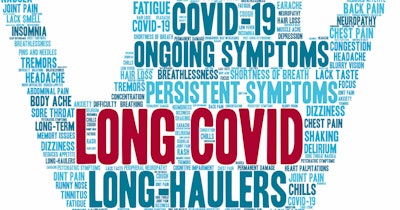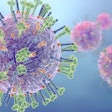
In a broad study of over 53,000 participants in France, researchers examined patients with persistent symptoms after SARS-CoV-2 infection and concluded that the prevalence of this phenomenon constituted a public health concern.
The World Health Organization (WHO) has defined the post-COVID-19 condition, also commonly known as long COVID, as “the illness that occurs in people who have a history of probable or confirmed SARS-CoV-2 infection; usually within three months from the onset of COVID-19, with symptoms and effects that last for at least two months.”
The aim of this latest research, which was published on Wednesday in Infectious Diseases, was to answer the largely unresolved question of how often these symptoms persist a year after the acute infection. The French researchers determined in their cross-sectional study that in 10.1% of cases in the study, the patients were still suffering symptoms one year after their initial SARS-CoV-2 infection.
“This cross-sectional study found that most symptoms after SARS-CoV-2 infection disappear within one year,” concluded the researchers. “However, in a pandemic context with a high level of cumulative incidence, the absolute prevalent number of people with persistent symptoms after one year remains a public health concern.”
Until this study, research on the persistence of symptoms did not exceed 8 to 10 months of follow-up and was performed mainly in specific populations, including individuals entering care for COVID-19 management or who were selected because they had persistent symptoms.
The more than 53,000 participants in the study were part of a nationwide survey in France in which all participants were asked to complete a questionnaire between April 1 and June 30, 2020. The questionnaire sorted out variables such as sociodemographic characteristics, comorbid conditions, COVID-19 diagnosis, and acute symptoms. Then blood samples were collected between May 1 and November 30, 2020 for serologic analysis. Finally, a follow-up internet questionnaire was completed between June 1 and September 30, 2021, with details on persistent symptoms, their duration, and SARS-CoV-2 infection diagnosis by polymerase chain reaction.
From the 53,000 who completed the questionnaire, a total of 3,972 participants had been infected with SARS-CoV-2. Of these 3,972 participants, 2,647 reported at least one symptom during the acute phase. Of these 2,647 participants, 861 reported at least one persistent symptom lasting two or more months after the acute phase. After one year of follow-up, the estimated percentage of individuals with complete symptom resolution was 89.9%, leaving 10.1% still suffering symptoms a year after the initial infection.
Participants over the age of 60 years, females, and those with a history of cancer, a history of tobacco use, high body mass index, or a high number of symptoms during the acute phase were associated with slower resolution of symptoms.
One of the key limitations of the study was that it only included people with internet access needed to fill out the second questionnaire. Of those people, only a fraction chose to participate, resulting in the study not being representative of the general French population.
However, the researchers argue that the study was not intended to provide nationally representative prevalence estimates of long COVID, but rather to explore the duration of symptoms and the factors associated with their resolution among participants who reported SARS-CoV-2 infection.



















